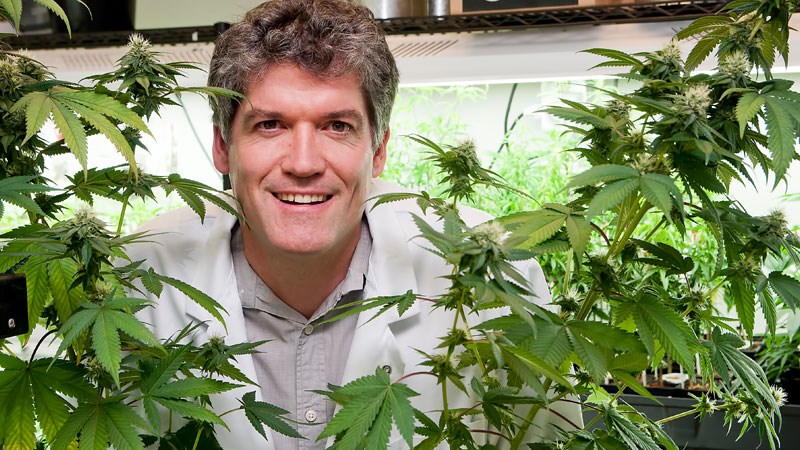As the Canadian marijuana industry awaits federal legalization of recreational pot – expected in July 2018 – eyes (and money) are turning to small- town B.C. for a potential profit explosion.
But big players are also catching the buzz.
Among the producers intending to make their mark is Sante Veritas Therapeutics, which is transforming the old Catalyst Paper Corp. office building in Powell River into a medical marijuana grow-op.
The company intends to brand itself as an integrated producer and marketer of cannabis products and therapies.
“Powell River was chosen because of our local affiliation and the warm reception by the municipality toward legalized cannabis cultivation,” said Sante Veritas CFO Suzanne Wood. “The city recognized that we would bring temporary as well as permanent jobs both during the construction phases as well as for the long term.”
Sante chose the 30,000-square-foot Catalyst site because it was “a location that suited the strict requirements of Health Canada as far as security, amenities as well as providing the opportunity for future expansion.”
As well, two founding members of the company, Donovan Edwards and Bob Poore, have lived in the Powell River area for many years.
The building, once part of the largest paper mill in the world, is just entering the permitting phase.
Powell River economic development officer Scott Randolph said the city and community have been strongly supportive of the project. They expect an investment of $6 million to $7 million in refurbishment, the creation of 50 jobs and spending in the community of $2 million to $3 million annually.
“For smaller towns, it’s a great direction to move in order to diversify the economy and create jobs,” said Randolph.
In Duncan on Vancouver Island, Broken Coast Cannabis has been operating since 2014. Growing in a 26,000-square-foot facility, it produces approximately 1,700 kilograms of pot per year, supplying 7,000 patients.
Co-founder and general manager John Moeller acknowledges that the company’s ability to take advantage of legalization will only be determined by how much product they can grow.
Research
Pot’s potential has already spawned some serious players, like Canopy Growth Corp., a medical marijuana company that, in 2014, went from a penny stock to a $500 million company almost overnight.
Even serious science institutes are getting in on the game. Last fall, Genome BC announced a $500,000 investment in Anandia Labs.
Founded by University of British Columbia (UBC) adjunct professor Jonathan Page, who co-led the first genome sequencing of Cannabis sativa, Anandia Labs specializes in testing medical marijuana and using genomics for plant breeding.
Because pesticide use is a concern in any product consumed by humans, Anandia also plans to use genomics to develop pest-resistant strains.
One sector that expects to benefit from the marijuana industry is clean-tech and energy savings companies. Legend Power for example, recently received an order for one of its energy management systems from a licensed marijuana grower.
“It’s probably one of the most – if not the most – energy-intensive industries per square foot that there is,” said Erik Wolfe, senior manager of channel sales for Legend Power.
But Moeller believes growers will continue to face financial pressure as they attempt to expand. Banks will remain leery of the industry, he said.
“Even if it’s legalized here, in the States it’s still seen as the proceeds of crime so banks aren’t lending any money,” he said.
Cannabis stock manager Brayden Sutton is more conservative when he thinks about when legalization will actually occur, believing Canada won’t see any rollout until 2019. Until then, the markets will remain unsettled, he said.



